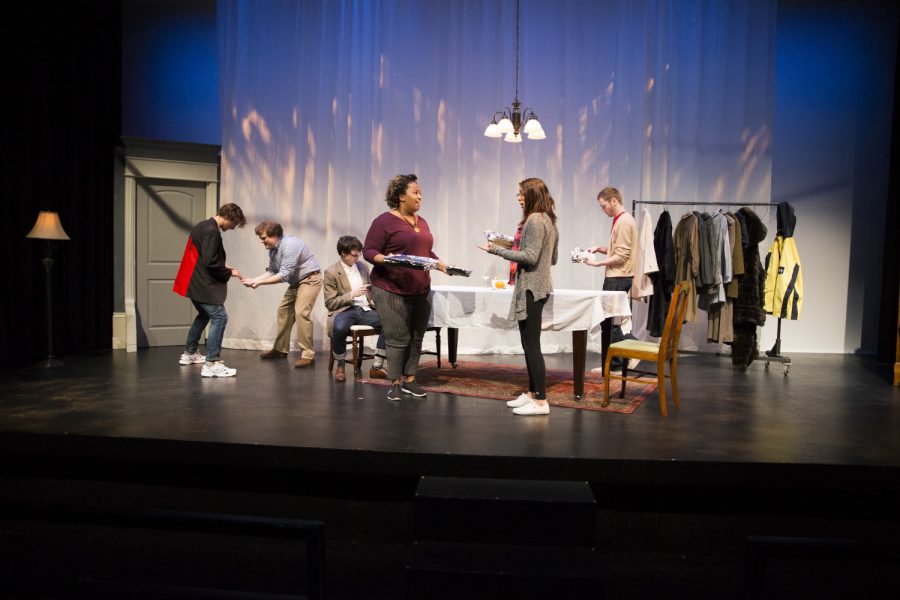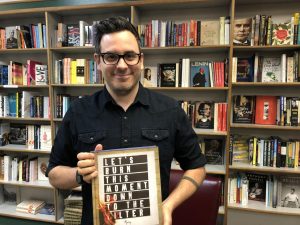A UI play walks through Passover dinner with a family full of surprises and secrets
‘Why is This Night Different?’ is a play set during Passover. When secrets are unveiled and unwanted visitors arrive, things start to turn sour for the family.
Actors interact and set a table during “Why is This Night Different?” at the Theater Building on Tuesday, Nov. 27, 2018. The play centers on family drama on Passover.
November 28, 2018
The holidays take first place when it comes to food, travel, and most importantly, family drama. The holidays wouldn’t be the holidays if adult children didn’t bring home unwanted spouses and their insecurities into a home they are no longer familiar with.
Why Is This Night Different? is a comedic family drama whose conflict ignites on the night of Passover and follows a family through the rituals of the Passover meal, Seder. The show will première at 8 p.m. today in Theater Building Theater B.
“It’s a play about a real family with real relationships,” said Arthur Borreca, a co-head of the Playwrights Workshop. “It’s looking at the question of what family is and the struggles that go on in a family. Everything that can go wrong during a holiday event goes wrong.”
Set in an upper-middle-class suburban home, characters fume over the course of the Seder, and some parts of the meal are done in parallel with readings from the Torah.
The family await their adult children to arrive but come to discover that one of their daughters’ boyfriend is more than 20 years older than her, and in a whopping $150,000 in debt. Another curtain is unveiled when it turns out that the parents are at the beginning of separating.
Mom, one of the leading roles, helps drives the plot with changes she’s fabricated in her personal life. UI student Liat Graf, who plays the role, says that in the process of enveloping herself into the character, she found some similarities.
“It really is a process of reading the script time and time again,” she said. “She’s finding who she is as a complete human being. I’ve been finding similarities between her and me and have found some similarities between her and my own parents. I can understand where she’s coming from; she just wants her family to understand her. She teaches the audience to live their lives truthfully and fearlessly.”
Related: Multimedia mashup brings timeless attention to Syrian refugee crisis
For playwright Aja Nisenson, her characters are very dear.
“I typically hear the characters, and they speak to me, and I write what they say,” she said. “Each character has a soft spot in my heart. Mom definitely drives this play forward, but every character has his or her powerful force and influence on the play.”
While Passover isn’t celebrated until March, the audience can relate to the family tensions, secrets, and surprises coming from any social/religious perspective.
“This play is about finding your true self and expressing your inner desires in full,” director Sarah Hamilton said. “As it goes on, each character works to break free of the restraints that this family and society have placed on them, so that they can fully express their individuality. I think this is something we can all relate to.”







